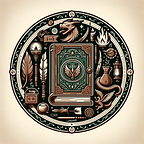The Tale of the Crying Stone: Beauty Lost
In ancient times, there lived an old widow and her beautiful daughter named Darmi in a remote village in West Kalimantan, Indonesia. They lived in a hut located at the edge of the village.
Since Darmi’s father passed away, their lives became difficult as he left no inheritance to support Darmi and her mother.
To make ends meet, the mother worked in other people’s fields as a laborer. Meanwhile, Darmi grew up as a pampered and lazy girl. Whatever she asked for had to be granted. In addition to being pampered, Darmi was also lazy. She spent her time dressing up and admiring her beauty in front of the mirror.
Every evening, Darmi would stroll around the village aimlessly, showcasing her beautiful face and refusing to help her mother earn money in the fields.
Whenever her mother invited her to work in the fields, Darmi always refused, citing concerns about getting her nails and skin dirty from the mud.
“Nak (child), come help Mama work in the fields,” her mother would invite.
“I don’t want to! I won’t go to the fields. My nails and skin will get dirty from the mud,” Darmi replied.
“Don’t you have any pity for me, Nak?” her mother asked.
“No! You’re the one who’s old and works in the fields because there’s no man interested in your wrinkled face,” Darmi replied harshly.
Hearing Darmi’s response, her mother couldn’t say a word. With a heavy heart, she went to the fields to work. However, Darmi stayed in the hut, continuously grooming herself to look beautiful.
After her mother returned from the fields, Darmi asked for the wages her mother earned to buy beauty products.
“Where is the wage?” Darmi demanded.
“Don’t, Nak! This money is for buying our daily necessities,” her mother pleaded.
“But my powder is finished. I need to buy a new one!” Darmi insisted.
“You’re an ungrateful child! You only know how to spend money but refuse to work,” her mother said in frustration.
Despite being upset and angry, her mother still gave Darmi her wages.
This pattern continued day after day. Darmi would repeatedly ask for her mother’s wages to buy more beauty products. This continued almost every day.
One day, her mother went to the market, and Darmi asked her to buy a beauty tool. However, her mother didn’t know which beauty tool she meant. So, her mother suggested they go to the market together.
“If that’s the case, come accompany Mama to the market!” her mother invited.
“I don’t want to go to the market with Mama!” Darmi rejected the invitation.
“But, Mama doesn’t know which beauty tool you mean, Nak!” her mother explained.
After being pressed and feeling compelled, Darmi agreed to accompany her mother to the market. However, she set a condition.
“I’ll go to the market, but Mama has to walk behind me,” Darmi told her mother.
“Why, Nak?” her mother asked curiously.
“I’m embarrassed if people in the village see us walking side by side,” Darmi said with disdain.
“Why should you be embarrassed, Nak? Aren’t I your biological mother?” her mother asked. “Mama should reflect. Look at this face with wrinkles and clothes that are very dirty! I’m ashamed to have a parent who looks so messy!” Darmi retorted.
Although saddened, her mother complied with her daughter’s request.
They set off to the market, with Darmi walking ahead, and her mother following behind, carrying a basket.
Although they were mother and daughter, their appearances were strikingly different, as if they were not from the same family. In the middle of the journey, Darmi met her friend from another village.
“Hey, Darmi! Where are you going?” her friend asked.
“To the market,” Darmi replied softly.
“Who is the person behind you? Is she your parent?” her friend inquired, pointing at Darmi’s mother carrying the basket.
“Of course not my Mom! She’s my servant,” Darmi replied sarcastically.
Like a lightning strike, her mother heard her daughter’s words. However, she remained silent while holding back her sorrow.
Throughout the journey to the market, this scenario continued. Eventually, her mother stopped and sat by the roadside.
“Ma! Why are you stopping?” Darmi asked in surprise.
Several times Darmi asked, but her mother remained silent, not answering her questions. A moment later, Darmi saw her mother’s mouth moving slowly while raising both hands.
“Hey, what is Mama doing?” Darmi asked, raising her voice.
Her mother still didn’t answer her daughter’s question. Instead, she prayed to God to punish her disobedient child.
“Oh, God! Forgive your weak servant. I can’t bear facing my disobedient child anymore. Give her a fitting punishment!” her mother prayed.
After a while, the sky suddenly became overcast. Lightning struck, and thunder roared loudly. Heavy rain poured down. Then, slowly, Darmi’s legs turned stiff and became stone. Darmi panicked.
“Mama…! Mama…! What’s happening to my legs?” Darmi asked while screaming.
“Forgive me, Darmi! Forgive me! Darmi won’t do it again, Ma!” Darmi cried in panic.
However, nothing could be done; the die was cast. Slowly, Darmi’s entire body turned into stone. The transformation occurred from her legs, body, to her head.
The disobedient child could only cry in remorse for her actions. Before her head turned into stone, her mother still saw tears falling from her daughter’s eyes. All
the people passing by witnessed the event.
Shortly after, the weather cleared up as if nothing happened. However, Darmi’s entire body had turned into stone. The stone was then placed by the roadside, leaning against the cliff. The local community named it the “Crying Stone.”
Conclusion:
From the Legend of the Crying Stone above, the moral lesson is to respect and cherish both of your parents. Besides one’s own hard work, a child’s success and happiness depend significantly on the prayers of both parents.
